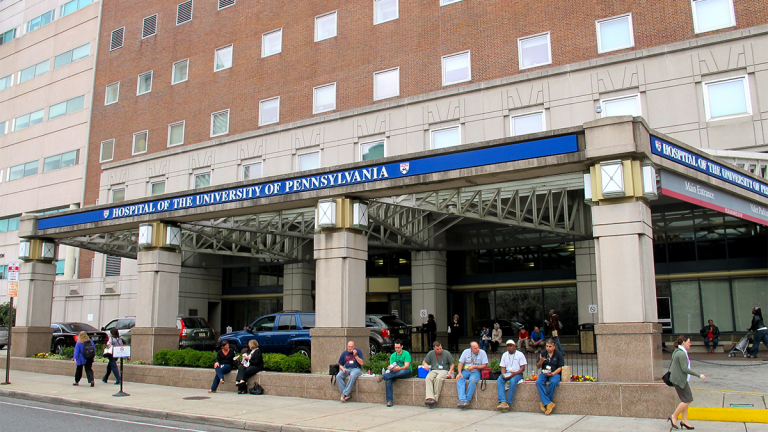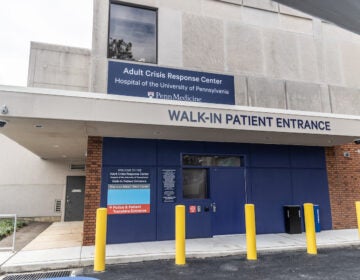Penn receives $6.4 million from NIMH for new mental health center
University of Pennsylvania researchers want to try to reduce something called the “research to practice gap” in mental health.

University of Pennsylvania (Ashley Hahn/PlanPhilly)
A $6.4 million grant from the National Institute of Mental Health will fund a new research center at the University of Pennsylvania to study how evidence-based treatment can better circulate to more therapists and mental health care providers.
Researchers want to try to reduce the “research to practice gap” in mental health.
Rinad Beidas, an assistant professor of psychiatry and director of implementation research at Penn, said it takes 17 years for a small percentage of research to make its way into community settings.
“That means that if an innovation today was developed to treat a particular condition, it’s likely that a patient with that condition today may never get that innovation,” she said. “And if they do get it, it will be many years in the future … there is a growing sense and understanding in the literature that that’s not acceptable.”
Take cognitive behavioral therapy, for example. It was developed in the 1960s, and though it’s been proved to work, lots of providers still don’t use it.
The center will focus on three projects. One will look at how to make sure people keep taking their antidepressants and another will target aides who work with kids who have autism.
The third, Beidas’ project, will look at how to best encourage therapists to use evidence-based practices more often in their sessions with patients. Borrowing from the field of behavioral economics, the projects will look at financial and nonfinancial incentives that could change people’s behavior.
The grant money, which was awarded in August, will see the projects through the next four years.
WHYY is your source for fact-based, in-depth journalism and information. As a nonprofit organization, we rely on financial support from readers like you. Please give today.




